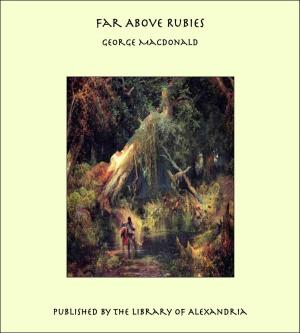All-Hallow Eve; or, The Test of Futurity
Nonfiction, Religion & Spirituality, New Age, History, Fiction & Literature| Author: | Robert Curtis | ISBN: | 9781465560841 |
| Publisher: | Library of Alexandria | Publication: | July 29, 2009 |
| Imprint: | Library of Alexandria | Language: | English |
| Author: | Robert Curtis |
| ISBN: | 9781465560841 |
| Publisher: | Library of Alexandria |
| Publication: | July 29, 2009 |
| Imprint: | Library of Alexandria |
| Language: | English |
I could have wished that the incidents which I am about to describe in the following tale had taken place in some locality with a less Celtic, and to English tongues a more pronounceable, name than Boher-na-Milthiogue. I had at first commenced the tale with the word itself, thus: "Boher-na-Milthiogue, though in a wild and remote part of Ireland," etc. But I was afraid that, should an English reader take up and open the book, he would at the very first word slap it together again between the palms of his hands, saying, "Oh, that is quite enough for me!" Now, as my English readers have done me vastly good service on former occasions, I should be sorry to frighten them at the outset of this new tale; and I have therefore endeavored to lead them quietly into it. With my Irish friends no such circumlocution would have been necessary. Perhaps, if I dissever and explain the word, it may enable even my English readers in some degree to approach a successful attempt at its pronunciation. I am aware, however, of the difficulty they experience in this respect, and that their attempts at some of our easiest names of Irish places are really laughable—laughable, at least, to our Celtic familiarity with the correct sound. Boher is the Irish for "bridge," and milthiogue for a "midge;" Boher-na-Milthiogue, "the midge's bridge." There now, if my English friends cannot yet pronounce the word properly, which I still doubt, they can at least understand what it means. It were idle, I fear to hope, that they can see any beauty in it; and yet that it is beautiful there can be no Celtic doubt whatever. Perhaps it might have been well to have written thus far in the shape of a preface; but as nobody nowadays reads prefaces, the matter would have been as bad as ever. I shall therefore continue now as I had intended to have commenced at first
I could have wished that the incidents which I am about to describe in the following tale had taken place in some locality with a less Celtic, and to English tongues a more pronounceable, name than Boher-na-Milthiogue. I had at first commenced the tale with the word itself, thus: "Boher-na-Milthiogue, though in a wild and remote part of Ireland," etc. But I was afraid that, should an English reader take up and open the book, he would at the very first word slap it together again between the palms of his hands, saying, "Oh, that is quite enough for me!" Now, as my English readers have done me vastly good service on former occasions, I should be sorry to frighten them at the outset of this new tale; and I have therefore endeavored to lead them quietly into it. With my Irish friends no such circumlocution would have been necessary. Perhaps, if I dissever and explain the word, it may enable even my English readers in some degree to approach a successful attempt at its pronunciation. I am aware, however, of the difficulty they experience in this respect, and that their attempts at some of our easiest names of Irish places are really laughable—laughable, at least, to our Celtic familiarity with the correct sound. Boher is the Irish for "bridge," and milthiogue for a "midge;" Boher-na-Milthiogue, "the midge's bridge." There now, if my English friends cannot yet pronounce the word properly, which I still doubt, they can at least understand what it means. It were idle, I fear to hope, that they can see any beauty in it; and yet that it is beautiful there can be no Celtic doubt whatever. Perhaps it might have been well to have written thus far in the shape of a preface; but as nobody nowadays reads prefaces, the matter would have been as bad as ever. I shall therefore continue now as I had intended to have commenced at first















